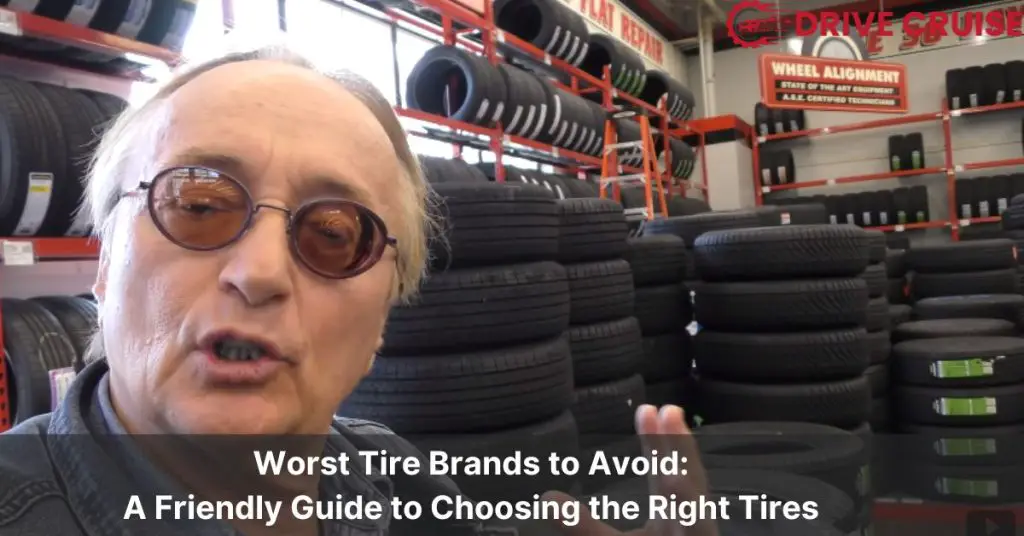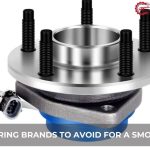When it comes to your vehicle, tires are one of the most important components for safety, performance, and overall driving experience. Tires provide the necessary grip and traction to keep your vehicle on the road, especially in adverse weather conditions. They also affect your vehicle’s fuel economy, handling, and braking distance. As such, it’s important to choose the right tires for your vehicle and driving needs.
However, not all tire brands are created equal. While there are plenty of reputable tire brands on the market, there are also some that consistently fall short in terms of quality and performance. These “worst” tire brands can be a real headache for drivers, leading to issues like poor handling, excessive wear and tear, and even blowouts. While the concept of “worst” tire brands can be subjective, there are some brands that have garnered a reputation for consistent quality concerns.
Red Flags: Identifying Low-Quality Tires
When shopping for new tires, it’s important to be aware of the red flags that could indicate low-quality tires. Here are some things to look out for:
Limited Industry Recognition and Reviews
If you come across a brand with little to no online presence, no recognition from established tire review platforms, and few user reviews, it may be cause for concern. Brands with limited industry recognition and reviews may lack the experience, resources, and expertise to produce high-quality tires.
Unrealistic Performance Claims
Be wary of tire brands that make exceptional performance claims at rock-bottom prices. While it may be tempting to go for the cheapest option, these brands may prioritize cost-cutting measures over quality materials and engineering. Remember, if it sounds too good to be true, it probably is.
Extremely Low Treadwear Warranties
Treadwear warranties are an important factor to consider when purchasing new tires. If a tire brand offers an extremely low treadwear warranty (e.g., less than 30,000 miles), it could indicate the use of lower-grade materials that wear out quickly. It’s important to prioritize durability and longevity when choosing new tires.
Cautionary Examples: Brands to Approach with Care
Focus on Lesser-Known Brands
When it comes to purchasing tires, it’s important to do your research and be cautious of lesser-known brands. While not all of these brands are bad, it’s important to look for brands that lack established reputations within the automotive industry and are primarily sold through unknown retailers or online marketplaces with limited return policies.
One such brand to be cautious of is Accelera, a company from Indonesia that has been known to produce subpar tires. Additionally, many Chinese tire brands have a reputation for producing low-quality, unreliable, and unsafe tires, so it’s important to approach these brands with caution as well.
Brands with Frequent Safety Recalls
Another important factor to consider when purchasing tires is a brand’s history of safety recalls issued by the National Highway Traffic Safety Administration (NHTSA). Frequent recalls suggest potential safety hazards and should be taken into consideration before making a purchase.
One example of a tire brand with frequent safety recalls is Goodyear, which produced the G159 model for RVs from 1996 to 2003. The tires were known to burst into flames while the vehicle was being driven, leading to a recall being issued in 2003. Other brands to be cautious of include Chaoyang, Westlake, AKS Tires, Geostar, Triangle, Autogreen, Sunfull, Goodride, and Advanta, all of which have been known to produce tires that don’t deliver sufficient grip and can be unsafe to use.
Prioritizing Safety Over Savings
When it comes to purchasing new tires, it can be tempting to opt for the cheapest option available. However, prioritizing cost over safety can have hidden costs in the long run. In this section, we’ll explore the importance of investing in quality tires and the benefits of prioritizing safety over savings.
The Hidden Costs of Cheap Tires
While cheap tire brands may seem like a good deal initially, they often have hidden costs that can add up over time. For example, low-quality tires may wear out more quickly, requiring more frequent replacements. This can be especially costly if you have to replace them sooner than expected due to poor performance or safety concerns.
In addition, cheap tires may compromise your vehicle’s performance in wet weather or emergency situations, increasing the risk of accidents and costly repairs. When it comes to safety, it’s important to invest in quality tires that can handle a variety of road conditions and emergency situations.
Investing in Peace of Mind
When it comes to purchasing new tires, it’s important to prioritize safety over savings. Opting for reputable brands with good safety ratings and warranties provides peace of mind and potentially reduces long-term ownership costs. While quality tires may come with a higher price tag, they often provide better performance, longer lifespan, and improved safety.
By investing in quality tires, you can avoid the hidden costs associated with cheap tire brands and enjoy peace of mind on the road. Whether you’re commuting to work or embarking on a road trip, quality tires can help ensure a safe and enjoyable driving experience.
Finding the Right Tires: Beyond Brand Names
When it comes to purchasing new tires, it’s easy to get caught up in brand names and marketing hype. However, there’s more to finding the right tires than just choosing a well-known brand. Here are a few things to keep in mind when shopping for tires.
Importance of Researching Specific Models
Even the best and worst tire brands can have variations in performance across different tire models. That’s why it’s important to research the specific model you’re considering before making a purchase. Look for user reviews and professional ratings to get an idea of how the tire performs in real-world driving conditions. Pay attention to factors like grip, handling, noise, and wear.
Consulting a Tire Professional
If you’re not sure which tire brand or model is right for your vehicle, it’s always a good idea to consult a tire professional. These experts can assess your vehicle’s needs, driving habits, and budget to recommend the most suitable tire brand and model for your specific situation. They can also answer any questions you may have about tire maintenance, safety, and performance.
Conclusion
In conclusion, it’s crucial to avoid the worst tire brands and focus on reputable options with good safety ratings. Investing in high-quality tires can save you money in the long run and keep you and your passengers safe on the road.
To make an informed decision, research specific tire models and consult a professional. Consider factors such as tread life, handling, and wet and dry traction. Don’t just choose the cheapest option or fall for a brand name without doing your due diligence.
Remember, your tires are the only thing keeping your car connected to the road. Don’t compromise on safety for the sake of saving a few dollars. By choosing the right tires for your vehicle and driving needs, you can enjoy a comfortable and safe ride for years to come.
Related Posts:
- BFGoodrich vs Michelin: Which Tire Brand is Better?
- Blackhawk Tires Review: Affordable and Reliable Tires for Your Vehicle
- Blackhawk vs Michelin Tires: Which One Is the Better Choice?
- Fullway Tires Review: Are They Worth the Investment?
- Lion Sport Tires Review: The Ultimate Guide to Choosing the Best Tires for Your Vehicle
- Primewell Tires Review: Are They Worth the Investment?
- Worst Tire Brands to Avoid: A Friendly Guide to Choosing the Right Tires













